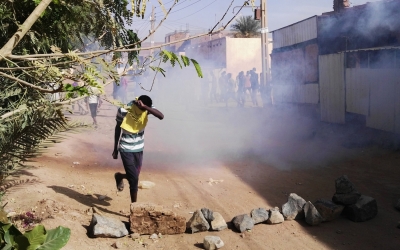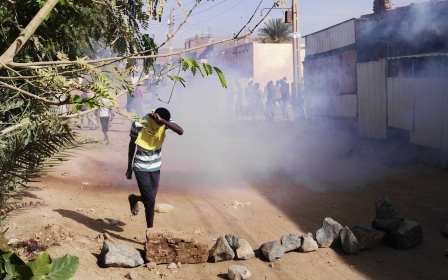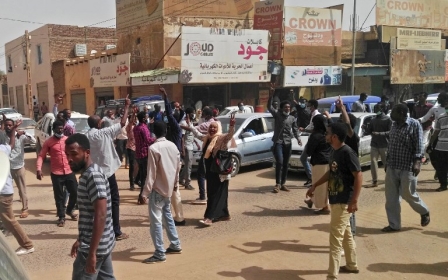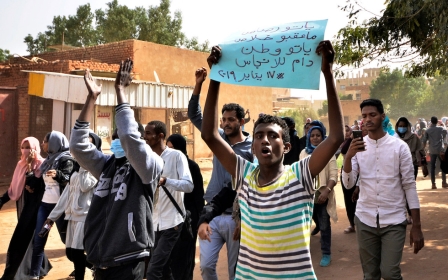Nine Sudanese women protesters sentenced to 20 lashes, one month in jail
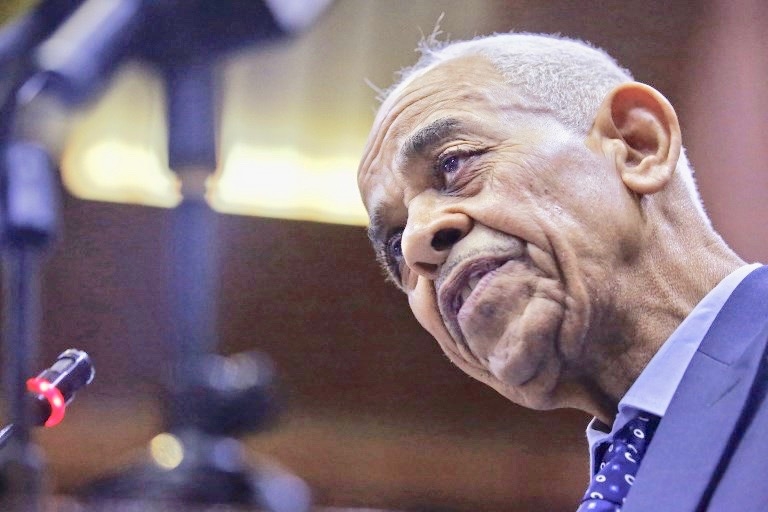
Nine Sudanese women protesters were sentenced on Saturday to 20 lashes and a month in prison for rioting, the Democratic Alliance of Lawyers said, a day after President Omar al-Bashir had ordered the release of all women detained in anti-government demonstrations.
Bashir declared a state of emergency last month that produced a series of measures, including the establishment of emergency courts across the country, including the one in Khartoum that convicted the nine women, Reuters said.
The nine women protesters were taken to court after they were arrested on Thursday for participating in a "banned demonstration" in the capital's eastern district of Burri, a site of regular protests.
"Nine women protesters have been sentenced to one month jail and 20 lashes," defence lawyer Enaam Atieg told AFP. "They have been taken to women's prison in Omdurman," she said, referring to the twin city of the capital across the Nile. Atieg added that an appeal against the court's verdict will be filed on Sunday.
New MEE newsletter: Jerusalem Dispatch
Sign up to get the latest insights and analysis on Israel-Palestine, alongside Turkey Unpacked and other MEE newsletters
A lawyers' group that is part of the protest movement also confirmed the sentencing. "Following pressure from their lawyers, the court has still not implemented the floggings," the Democratic Lawyers Alliance said in a statement.
The alliance, part of the Sudanese Professionals' Association (SPA), the main organiser of the protests, said more than 800 people have been tried in the emergency courts so far.
SPA called for fresh demonstrations in Omdurman on Sunday.
Protests against Bashir and his National Congress Party have taken place almost daily since 19 December in towns and cities all over Sudan, in what has become the most sustained popular challenge to him since he took power in a coup 30 years ago.
Bashir is wanted by the International Criminal Court on charges of masterminding genocide in the Darfur region, which he denies. He has been lobbying for Sudan to be removed from a list of countries Washington considers state sponsors of terrorism.
The listing has blocked investment and financial aid that Sudan was hoping for when the United States lifted sanctions in 2017, economists say.
Sudan has been rapidly expanding its money supply in an attempt to finance its budget deficit, causing spiralling inflation and a steep decline in the value of its currency that has hurt the economy, which has helped spark the protests.
On Friday, International Women's Day, Bashir ordered the release of all women arrested in connection with the demonstrations.
Still, hundreds turned out for protests in Khartoum and Omdurman, undeterred by the emergency measures, in which Bashir also dissolved the central government, replaced state governors with security officials, expanded the powers of security forces and banned unlicensed public gatherings.
Officials say 31 people have died in protest-related violence so far, while Human Rights Watch has put the death toll at at least 51.
Middle East Eye delivers independent and unrivalled coverage and analysis of the Middle East, North Africa and beyond. To learn more about republishing this content and the associated fees, please fill out this form. More about MEE can be found here.


